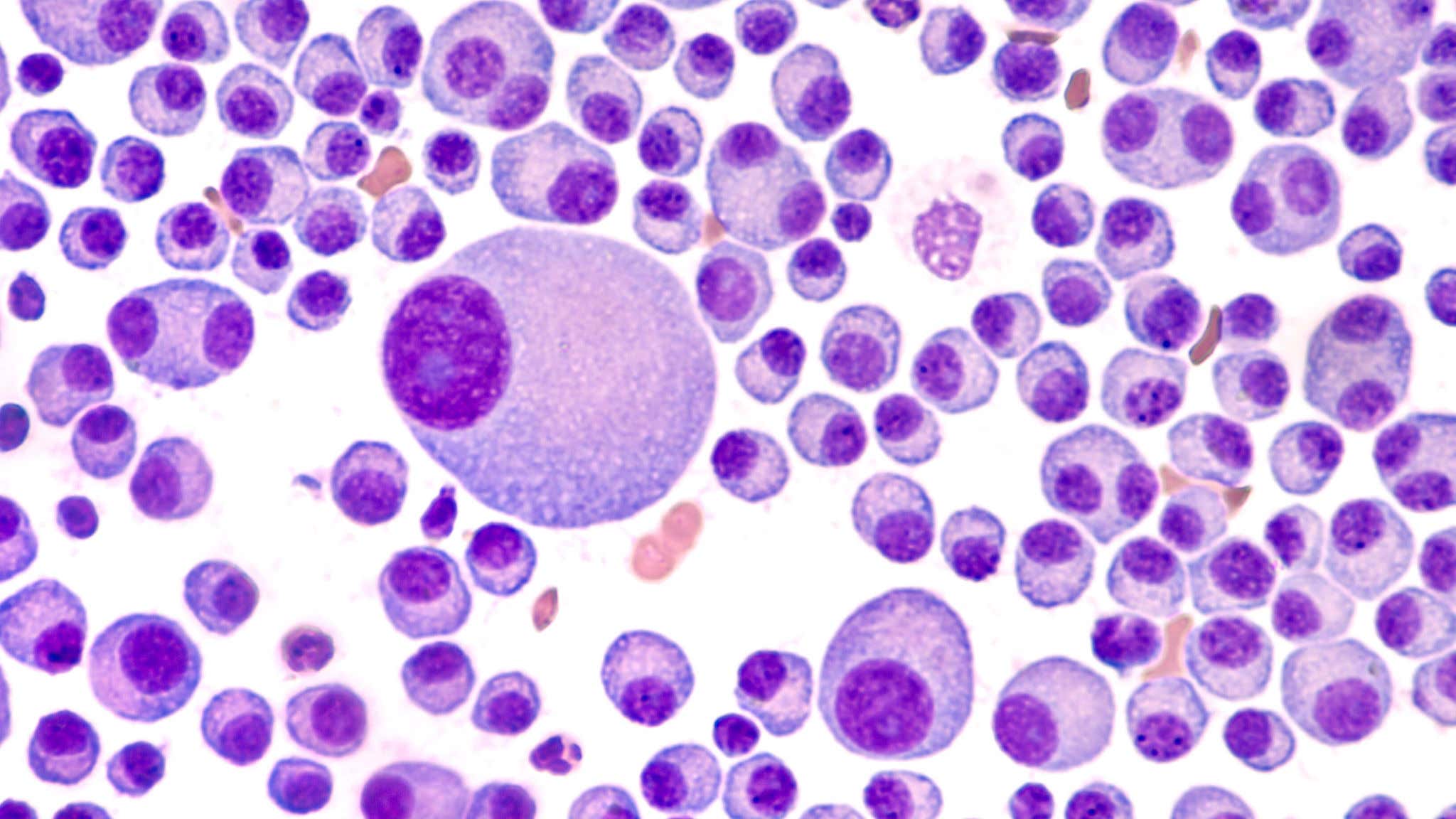MENARINI is a fully integrated privately owned pharma company with a long and successful heritage in strategic partnering across the globe. We have a profound know-how stemming from our strong R&D capabilities in key therapeutic areas, coupled with our excellence in commercial execution and our powerful direct presence on a global basis.
Multiple Myeloma
Multiple myeloma is the second most common hematologic malignancy in adult patients1.
The incidence of multiple myeloma has increased since 19902. According to the World Health Organization, in 2020, there were approximately 51,000 new cases and 32,000 deaths from this cancer in Europe3. It is more common in older people with a median age of diagnosis at around 70 years4.
Multiple myeloma develops from a type of white blood cells in the bone marrow. These cells are called plasma cells and they grow in an abnormal fashion yielding in too many of the same type of these cells in the patient’s bone marrow5. Clinically, this can cause renal impairment, hypercalcemia, lytic bony lesions, and anemia.2
While the treatment of multiple myeloma has improved over the last 20 years, and overall survival has increased considerably, the disease remains incurable6, and nearly all patients will eventually relapse and develop disease that is refractory to all approved anti-myeloma therapies.
Therefore, there continues to be a high unmet medical need for new therapies, particularly those with novel mechanisms of action that can overcome resistance to current anticancer drugs.7
We at the Menarini Group are dedicated to improving outcomes for patients with multiple myeloma. Our actions reflect our commitment to making a difference to patients’ lives and optimizing patient care at all stages: through non-invasive blood testing and developing new treatment options.
References
1 Heider M, Nickel K, Högner M, Bassermann F. Oncol Res Treat. 2021;44(12):672-681.
2 Cowan AJ, et al. JAMA Oncol. 2018; 4(9):1221–1227
3 World Health Organization. 2020. Available at:
4 Blimark CH, et al. Haematologica. 2018: 103 (3): 506-513
5 Cancer Research UK. Available at:
6 International Myeloma Foundation. Available at:
7 Dhanasiri S, et al. Clin Ther.2021;43(11):1983–1996

























